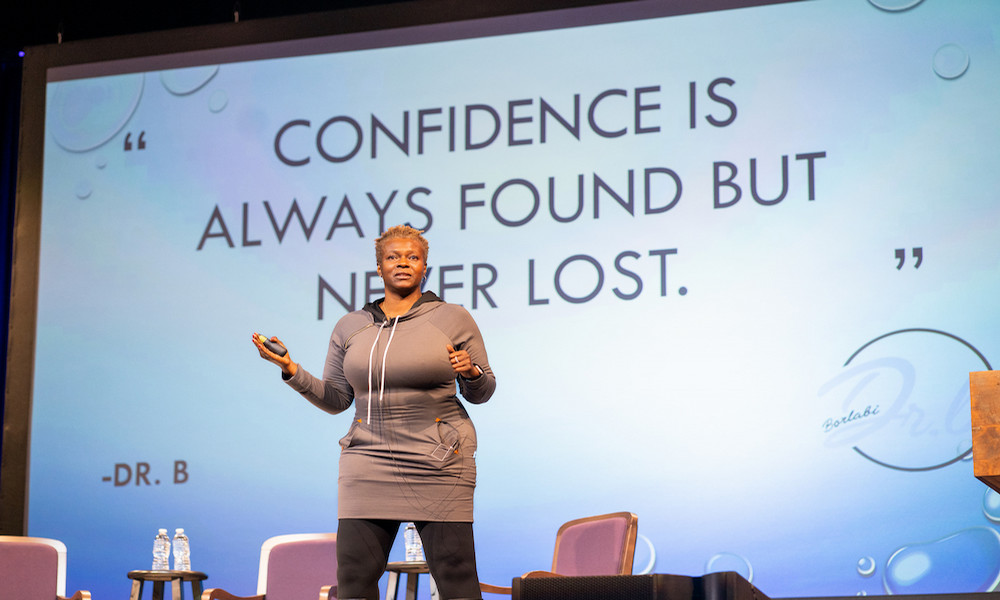Sport performance expert offers strategies to improve confidence, happiness
JMU Headlines
SUMMARY: Dr. Wendy Borlabi was the fourth guest speaker in the 2023-24 Inclusive Community Series. Known to her clients as “Dr. B,” Borlabi has a history of working with elite athletes on high-performance concepts such as teamwork, mental toughness and confidence.
Sports psychologist Dr. Wendy Borlabi returned to JMU Nov. 16 to deliver a lecture on the influence of mental health and wellness on performance as part of the university’s Inclusive Community Series.
Borlabi, director of performance and mental health for the NBA’s Chicago Bulls and founder of Borlabi Consulting, worked at JMU for five years as the liaison between Athletics and the Counseling and Student Development Center. She spearheaded the development of JMU’s sport psychology department.
“This is where my career started … where I had an opportunity to spread my wings,” she said, citing her work with Dr. David Onestak, director of the Counseling Center.
Borlabi, known to her clients as “Dr. B,” has a history of working with elite athletes on high-performance concepts such as teamwork, mental toughness and confidence. Before joining the Chicago Bulls organization, she worked at the U.S Olympic Committee training center in San Diego, California, and co-founded Acumen Performance Group with six current and ex-Navy SEALs.
Performance, whether in sports, business, education or in life, is about “getting over the hump and being able to sustain success,” Borlabi said. When we don’t perform well, it’s easy to lose confidence and “lean into the negative,” she said.
Borlabi believes performance is shaped by perspective, expectations and emotions. “Not everything is a win-win,” she said, nor should not succeeding at something be perceived as failing. Our shortcomings can be learning experiences. “It’s not a win-lose but a win-learn,” she said.
Often our expectations center on what others think and on outcomes, Borlabi said. Instead, we should focus on the things we can control, such as our preparation and our mindset.
Emotions, she said, are part of the game, but negative emotions, such as anger or jealousy, can get in the way and prevent us from moving forward. “Emotions are not the boss of you,” she said.
Good performance involves self-awareness, summoning your “superpower” — the unique skill or ability you bring to a team — and setting goals that are SMART (specific, measurable, attainable, realistic and timely) as well as controllable.
Borlabi uses books with her clients, including the classic self-help texts How Full Is Your Bucket? and Who Moved My Cheese?, to help them learn to “lean into the positive” and navigate change.
Wellness, she said, involves multiple dimensions, not all of which need to be fully cultivated at any one time for a person to be happy and perform at their best.
As a working professional and single mother of two young children, Borlabi admitted she’s not always good at achieving work-life balance, but she sets aside 10 minutes a day for a cup of tea, keeps a deck of playing cards in her car — she likes to play Solitaire — and occasionally enjoys a long, hot shower.
“Give yourself some grace,” she said.
The event in the Wilson Hall auditorium was hosted by the Office of Strategic Initiatives and Global Affairs, along with Student Affairs and Athletics.
